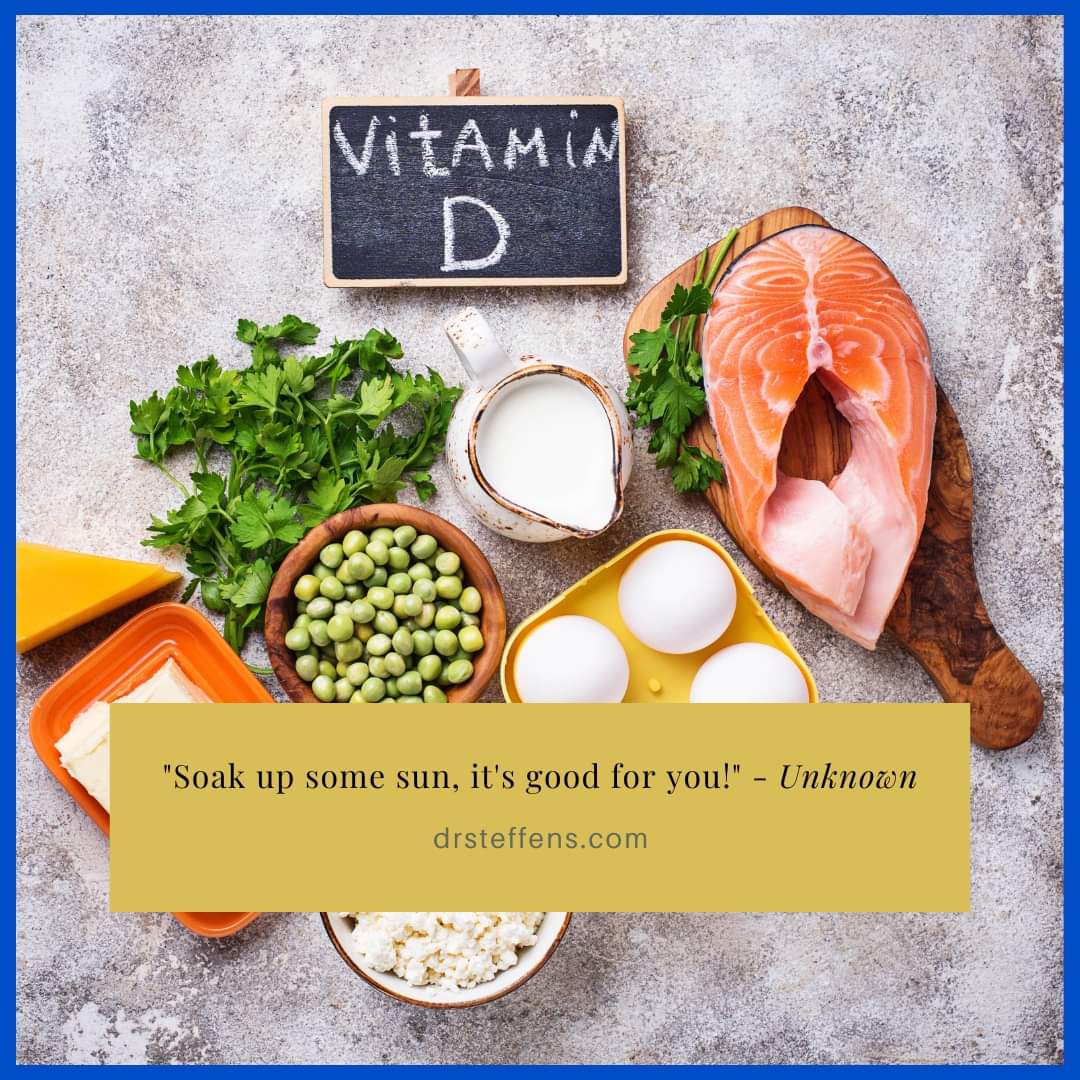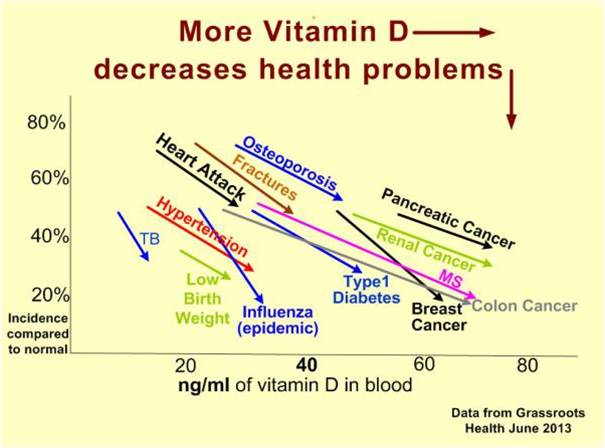How Vitamin D Can Jumpstart Your Health
Vitamin D is often called the “sunshine vitamin,” but its impact goes far beyond sunlight. From immune strength and bone health to mood and metabolism, the benefits of vitamin D are essential for overall wellness. Yet many people don’t get enough. In this article, we’ll explore how vitamin D supports your body, signs of deficiency, and practical ways to restore healthy levels safely and naturally.
Vitamin D is a fat-soluble vitamin and is considered a hormone nowadays. The skin makes vitamin D in response to sunlight. During the winter months, in some areas of the world, the lack of sunshine results in a reduced production of Vitamin D.
While rarely diagnosed, vitamin D deficiency affects over half the population. It has been linked to several diseases such as high blood pressure, bone loss, heart disease, diabetes, and certain types of cancers. This vitamin plays a role in everything in the body, from regulating your mood to creating normal cell growth. Aim to have your vitamin D level above 70 ng/mL!
Supplementation with vitamin D is a buzzword in the health and wellness industry because food sources might not provide sufficient D levels. Please keep reading to learn everything you must know about Vitamin D, natural food sources, supplementation, blood levels, and the importance of Vitamin D in impacting your health.
Vitamin D2 vs. Vitamin D3
There are two forms of vitamin D, so let’s see what the difference is between the two.
Vitamin D3 is mainly found in animal-sourced foods such as salmon, eggs, and liver. It is metabolized easily in the body, so D3 is considered to be absorbable.
Vitamin D2 is added to cereal and milk and found naturally in mushrooms. The study published in the Journal of Endocrinology and Metabolism states that D3 is much more effective at increasing vitamin D levels in the blood compared to D2.
Natural Sources of Vitamin D
1. Sunlight
Prioritize early morning sunlight exposure to set the circadian rhythm. Aim for 20-30 minutes of sun exposure without sunblock. To stay vigilant, if you notice your skin turning red, it’s important to seek shade, cover with clothing, or use non-toxic sun protection. It is the skin’s exposure to sunlight that matters in vitamin D production; therefore, 30-40% of your body should be uncovered. There is a lot of speculation that commercial sun protection blocks the critical synthesis of vitamin D.
Know that…
Climates with high sun exposure demonstrate favorable cancer outcomes. This may be a result of increased synthesis of vitamin D: ” As latitude increases, the amount of vitamin D UV decreases dramatically, which may inhibit vitamin D synthesis in humans” (Journal of Photochemistry & Photobiology)
The risk of cancer is greater in higher latitudes and colder climates. Arizona and New Mexico have the lowest cancer rates and are the top two sunniest states in the United States.

2. Food
Adding natural animal-based food to your diet is an easy way to increase vitamin D levels in the body. Here are the top vitamin D foods:
- Cod liver oil
- Wild Caught Salmon
- Beef Liver
- Eggs
- Sardines
- Grass-fed butter/ Ghee
- Mushrooms

Unfortunately, fortified food sources such as milk products and breakfast cereals have added vitamin D2, which is a type that is neither as absorbable nor as convertible by the body into the necessary form. Vegans and vegetarians are recommended to take a vitamin D supplement.
Supplementation
The easiest way to have healthy levels of vitamin D is through sun exposure and food intake. Considering the vast majority of the population lacks adequate levels of vitamin D, supplementation is often necessary.
The mainstream media kind of badmouthed vitamin D supplementation because it pulls calcium into the bloodstream, and it can end up in the arteries. Consequently, it is essential to consume a supplement that includes vitamin K. It is an essential cofactor that helps increase absorption and ensures that calcium ends up in the bones and tissues, not in the arteries.
As we discovered, vitamin D3 is preferred over D2 because it is twice as effective in increasing vitamin D levels. Look for a supplement that contains cholecalciferol, which stands for vitamin D3!
Next up, you should check the bottle for minimal other added ingredients. It is counterproductive to take a supplement to advance in health while at the same time consuming genetically modified or toxic additives that are harmful to the body.
Vitamin D is a fat-soluble vitamin so make sure to take your vitamin with a meal that includes a good source of fat- avocado, butter, or nuts -to optimize absorption.
Benefits of Vitamin D
Vitamin D is known to be only correlated with healthy bones; however, science has recently begun to discover the vital role of vitamin D in disease prevention.
- Increases Bone Health
Vitamin D boosts bone strength as it helps to absorb calcium into the bones. Also, it manages the mineral level of phosphorus, which is also key in the skeletal system. Don’t forget the role of K2 as a vehicle that helps to carry the calcium where it belongs. Studies suggest that people with enough vitamin D and calcium in their diets can slow bone mineral loss and help prevent osteoporosis.
- Boosts Mental Health
It is no secret that people tend to get the blues on gloomy days. The lack of sunshine affects mood and cognitive functions. Vitamin D deficiency is linked to depression, anxiety, and even Alzheimer’s disease.
- May help to fight cancer cell growth
Although more study is needed, laboratory results showed that vitamin D deficiency can be linked to certain types of cancer risk.
“..epidemiological studies show that higher serum levels of vitamin D are associated with substantially lower rates of colon, pancreatic, prostate, and other cancers, with evidence strongest for colorectal cancer.” Garland CF, Gorham ED, Mohr SB, Garland FC. Vitamin D for cancer prevention: global perspective. Annals of epidemiology. 2009 Jul 1;19(7):468-83.

- Increases immune function
Flu and common colds are more rampant during the winter months. The seasonal appearance led a British doctor to hypothesize that the lack of sunshine triggered influenza outbreaks. Several scientists published papers saying that people with low levels of vitamin D are more likely to get respiratory infections.
Who should take vitamin D supplements?
Vitamin D deficiency is one of the most common in the world. The following group of people are more susceptible to becoming vitamin D deficient:
- elderly
- vegans
- vegetarians
- people living at higher altitudes
- overweight people
- darker skinned people
To discover whether or not you are in a healthy range of vitamin D levels, it is best to get tested. You can ask your doctor to check your blood levels for vitamin D or order a home test like Everlywell to get checked at home.
Although there are many benefits of a high level of vitamin D, you must know that taking high amounts of vitamin D supplements for an extended period can cause toxicity. You can’t increase your vitamin D levels over the recommended limit with sun exposure or food intake. Better to get your levels tested before you commit to a regimen of daily supplements.
Vitamin D supplementation is widespread, as most people, including children, spend most of their days indoors and wear sunblock outside. While supplements can be necessary if you are tested below healthy levels, it is ideal to get vitamin D from direct sun exposure.
References:
- https://pubmed.ncbi.nlm.nih.gov/18492750/
- https://nutritioncanheal.com/en/vitamin-d-levels-are-key-to-cancer-prevention/
- https://www.sci.news/medicine/vitamin-d-cancer-05808.html
- Ginde AA, Mansbach JM, Camargo CA. Association between serum 25-hydroxyvitamin D level and upper respiratory tract infection in the Third National Health and Nutrition Examination Survey. Archives of internal medicine. 2009 Feb 23;169(4):384-90.
- Garland CF, Gorham ED, Mohr SB, Garland FC. Vitamin D for cancer prevention: global perspective. Annals of epidemiology. 2009 Jul 1;19(7):468-83.
- https://www.hsph.harvard.edu/nutritionsource/vitamin-d/
Popular Health Topics
